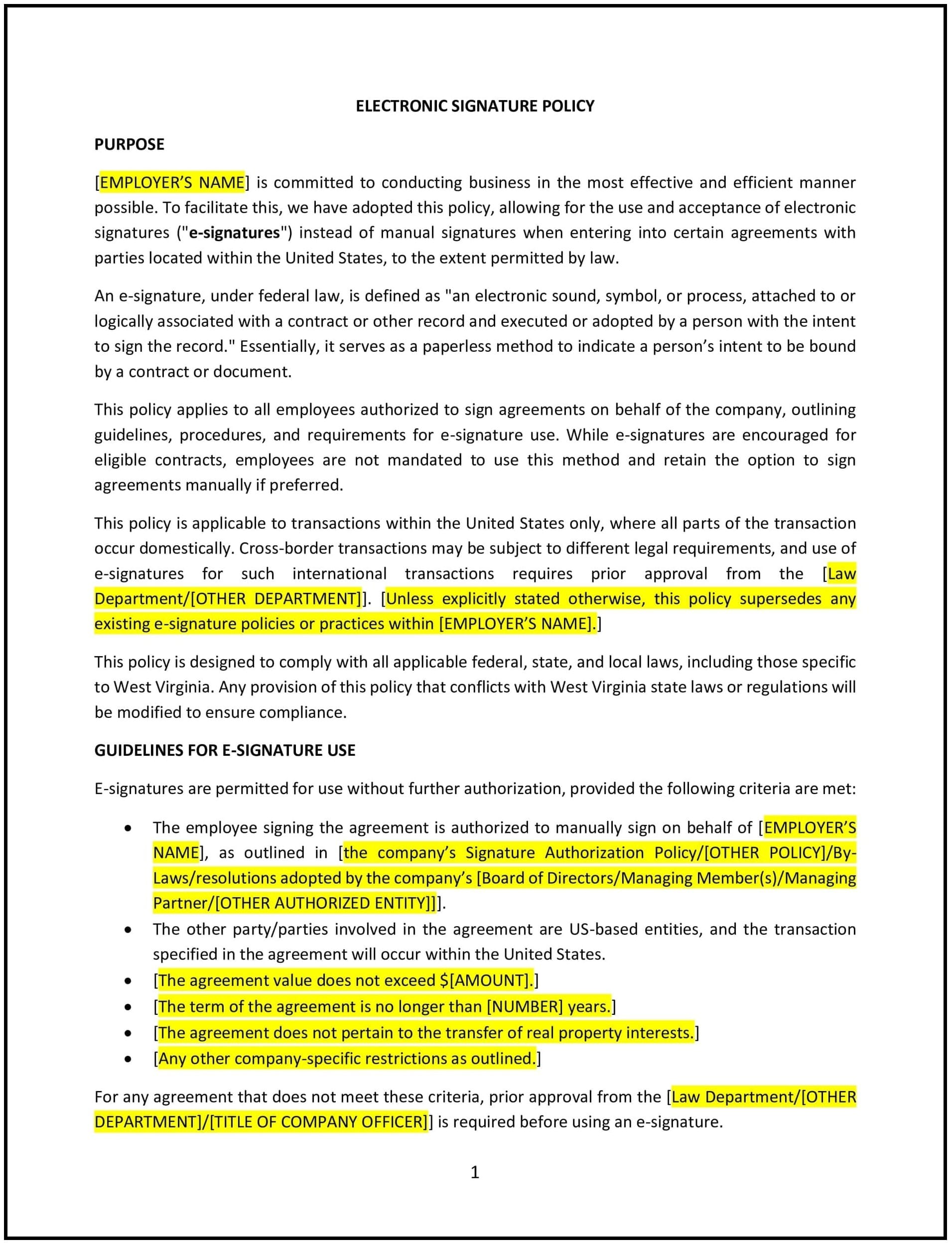Electronic signature policy (West Virginia): Free template
Got contracts to review? While you're here for policies, let Cobrief make contract review effortless—start your free review now.

Customize this template for free
Electronic signature policy (West Virginia)
In West Virginia, an electronic signature policy provides guidelines for the use, acceptance, and management of electronic signatures in business transactions. This policy ensures that electronic signatures are legally valid, secure, and appropriately used to streamline operations and reduce reliance on paper documentation.
The policy outlines the types of documents eligible for electronic signatures, the technology used, and the responsibilities of both signers and recipients.
How to use this electronic signature policy (West Virginia)
- Define electronic signatures: Clearly explain what constitutes an electronic signature under West Virginia law, including digital signatures, typed names, or other electronic methods of agreement.
- Specify eligible documents: List the types of transactions or documents that may be signed electronically, such as contracts, agreements, or forms.
- Outline the signing process: Provide instructions for signing and verifying electronic documents, including approved platforms or software.
- Address security measures: Establish protocols for safeguarding electronic signatures, such as encryption, authentication, and audit trails.
- Support compliance: Align the policy with West Virginia’s Uniform Electronic Transactions Act (UETA) and any relevant federal regulations.
Benefits of using an electronic signature policy (West Virginia)
- Enhances efficiency: Streamlines workflows by reducing the time and resources required for physical document signing.
- Reduces costs: Minimizes expenses related to paper, printing, and storage by transitioning to electronic processes.
- Supports compliance: Aligns with West Virginia’s UETA and federal regulations, ensuring the legal validity of electronic signatures.
- Improves security: Provides clear protocols for protecting electronic documents and signatures from tampering or unauthorized access.
- Encourages accountability: Establishes clear guidelines for the use and verification of electronic signatures.
Tips for using an electronic signature policy (West Virginia)
- Choose secure platforms: Use trusted electronic signature software that complies with legal and security standards.
- Communicate the policy: Share the policy with employees, clients, and partners to ensure they understand the guidelines for using electronic signatures.
- Train staff: Provide training on the proper use of electronic signature tools and platforms.
- Maintain records: Ensure all signed electronic documents are securely stored and accessible for future reference or audits.
- Review regularly: Update the policy to reflect changes in West Virginia laws, technology, or business needs.